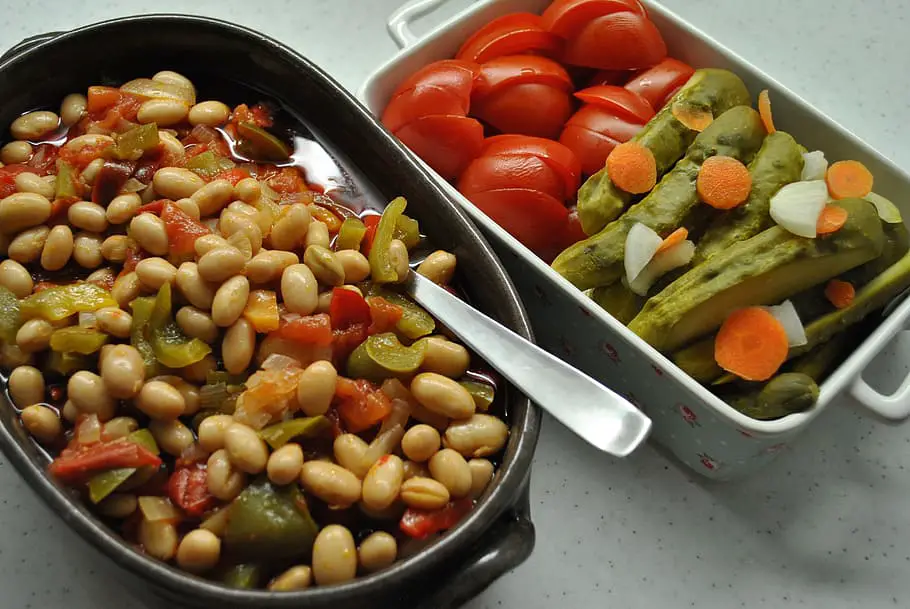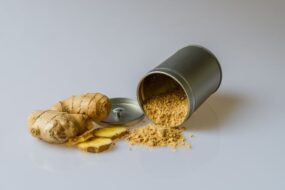
Beans are a versatile, nutritious, and incredibly beneficial food. In recent years, they’ve gained a reputation for their potential weight-loss benefits. But not all beans are the same.
So, which should you include to shed those extra pounds in your diet? This article explores what beans are good for weight loss, their numerous health benefits, and how to incorporate them into your diet best.
Table of Contents (click to expand)
What are Beans, and Why are They Important for Weight Loss?
Beans are an essential dietary staple in many cultures around the world. They’re a rich source of plant-based protein, dietary fiber, and many essential vitamins and minerals.
The high protein content of beans can help maintain lean body mass while promoting fat loss. The high fiber content helps you feel full, reducing the likelihood of overeating.
The role of beans in weight loss is also related to their ability to improve gut health. Beans are rich in resistant starches, which act as prebiotics, feeding the beneficial gut bacteria. A healthy gut microbiota is linked to healthy body weight and reduced risk of obesity.
How Beans Can Help You Lose Weight
When people think of “what beans are good for weight loss,” several key factors come into play. For instance, beans are low in calories and saturated fat, making them a perfect addition to a healthy or low-carb diet for weight management.
The high fiber content of beans can also help you feel full longer, curbing the urge to snack between meals and ultimately assisting in weight loss.
The Connection between Beans and Weight Loss
Beans, especially cooked kidney beans, pinto beans, and black beans, have numerous health benefits. One of the many health benefits beans offer is their potential to help lose weight. This is due, in part, to their fiber and protein content, both of which have been associated with feelings of satiety.
Beans and Satiety
Research has shown that individuals with a higher dietary fiber and protein intake are more likely to feel satisfied after a meal. Therefore, incorporating more beans into a meal plan can help reduce overeating, a common culprit behind weight gain.
Understanding the Nutritional Value of Beans
Beans are packed with essential nutrients that support overall health while aiding in weight loss. Let’s delve deeper into these nutrients.
Protein Content in Beans
Protein is an essential nutrient that can aid in weight loss by helping to maintain muscle mass during a calorie deficit. Beans, particularly black beans, are a good source of plant-based protein.
Fiber and Its Role in Weight Loss
Beans are rich in dietary fiber, contributing to a feeling of fullness, reducing cholesterol absorption into the bloodstream, and helping regulate blood sugar levels.
The Role of Canned Beans in Weight Loss
While fresh beans are great, canned beans offer convenience and accessibility that fresh beans may not. Choosing the right canned beans can provide all the benefits of beans without lengthy preparation time.
Benefits of Using Canned Beans
Canned beans are pre-cooked and ready to eat, making them a practical choice for those who want to incorporate more beans into their diet but don’t have the time or desire to prepare them from scratch. Cooked black beans, for instance, can be added to salads or mashed for a quick and healthy side dish.
Choosing the Right Canned Beans for Weight Loss
While canned beans are convenient, not all are created equal. Look for options with no added salt or sugar to avoid unnecessary calories and to maintain healthy blood sugar levels. Also, rinsing canned beans can reduce sodium content, which is beneficial for heart health and blood pressure.
Top Beans that are Good for Weight Loss
Different types of beans offer various nutritional profiles, but some have been specifically associated with weight loss. Among the top choices are black beans, red kidney beans, garbanzo beans (chickpeas), pinto beans, and navy beans.
Black beans are an excellent source of both protein and fiber, and they’re also rich in antioxidants. Red kidney beans are similarly beneficial, with the bonus of being one of the highest sources of resistant starch.
Garbanzo beans, or chickpeas, are a staple in many cuisines and provide ample fiber and protein. Pinto beans, often featured in Mexican cuisine, are rich in fiber and protein.
Finally, navy beans, also known as haricot beans, are a great source of fiber and have a low glycemic index, which can help manage blood sugar levels.
Beans and Blood Sugar Regulation
Beans can exceptionally regulate blood sugar levels, a vital weight management factor. They provide steady energy, prevent sugar cravings, and help maintain a healthy metabolism.
How Beans Help Manage Blood Sugar
The fiber and resistant starches in beans slow down the rate at which sugars are absorbed into your bloodstream. This gradual absorption prevents spikes and crashes in blood sugar levels, often leading to cravings for sugary foods. A diet high in beans and other legumes can help maintain healthy blood sugar levels and prevent insulin resistance, a common issue in obesity and type 2 diabetes.
Impact on Diabetes and Weight Loss
For individuals with diabetes, or those at risk, beans are a particularly beneficial food choice. Their ability to regulate blood sugar can help manage the disease and its associated weight issues. Regularly consuming beans can help maintain healthy body weight and reduce the risk of developing type 2 diabetes.
How to Incorporate Beans Into Your Diet for Weight Loss
There are endless ways to incorporate beans into your meals. They’re incredibly versatile, and their mild flavor makes them a great addition to various dishes. A simple start could be adding a half cup of cooked pinto beans to your favorite salad or making a nutritious bean salad with cooked navy beans, fresh cilantro, and a drizzle of olive oil for extra nutrition.
Tasty and Healthy Bean Recipes
Beans can be a star ingredient in many dishes. From soups and stews to salads and side dishes, beans can boost protein and promote feelings of fullness.
Balancing Beans with Other Foods
While beans can aid in weight loss, balancing them with other nutrient-dense foods is crucial to ensure a well-rounded diet. Your meal plan should include vegetables, whole grains, lean proteins, and healthy fats.
The Science Behind Beans and Weight Loss
Scientific studies have shown a correlation between bean consumption and lower body weight. People who regularly consume beans tend to have a lower body mass index (BMI) and smaller waist circumference.
Furthermore, bean consumption has been associated with a reduced risk of chronic diseases such as heart disease and type 2 diabetes, often linked to obesity.
Safety Precautions when Consuming Beans for Weight Loss
While beans offer many benefits, it’s also crucial to consider any potential risks and side effects. Eating beans in excess can cause gastrointestinal discomfort due to their high fiber content. Also, canned beans often contain added sodium, contributing to high blood pressure if not properly managed.
Potential Risks and Side Effects
While beans are generally safe for most people, it’s essential to introduce them gradually to your diet to reduce potential digestive discomfort. Also, individuals with specific health conditions such as Irritable Bowel Syndrome (IBS) may need to monitor their bean and other legume intake.
Knowing the Right Amount for Consumption
The amount of beans you should eat for weight loss depends on several factors, including your age, sex, physical activity level, and overall health. However, a good starting point might be incorporating half to one cup of beans into one or two meals daily.
What Kind of Beans Burn Belly Fat?
While no food can specifically target belly fat, certain foods, like beans, can contribute to overall fat loss, including belly fat. Black beans, kidney beans, chickpeas, and lentils are all high in fiber and protein, two essential nutrients that can promote feelings of fullness and reduce overall calorie intake.
Moreover, beans contain resistant starch that promotes fat burning and reduces belly fat. Incorporating these beans into a balanced diet and regular physical activity routine can help burn belly fat effectively.
Can I Eat Beans Every Day to Lose Weight?
Eating beans daily can contribute to weight loss, given that they are incorporated into a balanced, calorie-controlled diet. Beans are an excellent source of protein and fiber, which can help promote feelings of fullness and reduce overall calorie consumption.
Furthermore, beans’ low glycemic index can help to regulate blood sugar levels, reducing cravings and helping to maintain a steady energy level throughout the day. However, remember that variety in diet is essential for obtaining a wide range of nutrients, so it’s also beneficial to include other protein sources and a variety of fruits, vegetables, and whole grains in your diet.
What is the Healthiest Bean to Eat?
All beans are beneficial, but some stand out for their exceptional nutrient content. Black beans are packed with antioxidants, fiber, and protein. Chickpeas, or garbanzo beans, are incredibly versatile and rich in protein and fiber.
Kidney beans are high in various B vitamins and provide a good amount of resistant starch. However, the “healthiest” bean depends on your dietary needs and preferences. Variety is critical to a balanced diet, so including various beans in your meals can be beneficial.
Conclusion: Beans – A Perfect Addition to Your Weight Loss Diet
Beans are an excellent addition to any diet, offering numerous health benefits beyond weight loss. These benefits include reduced risk of heart disease, improved gut health, and blood sugar regulation. So, add more beans to your meals for healthier steps toward weight loss and overall well-being.





































